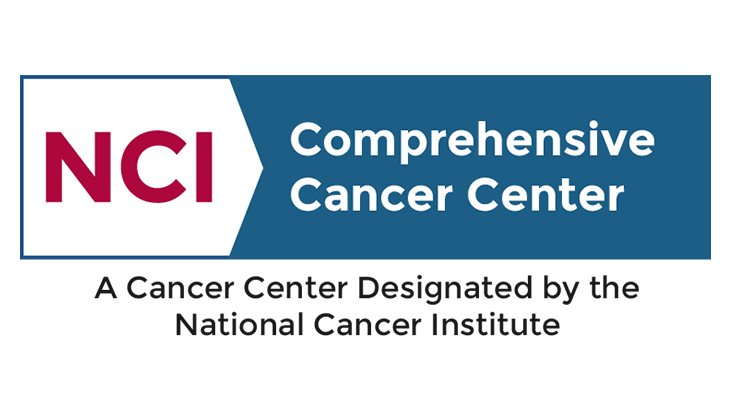Gastrointestinal (GI) cancer includes cancer of the:
At MedStar Health, we believe the future of cancer treatment hinges on a highly personalized approach to finding the right drugs for the right patients. We are an international center of excellence, part of one of only 40 comprehensive cancer centers in the country and one of only a few that focuses exclusively on GI cancers.
If you received a cancer diagnosis, or if you are still awaiting a final diagnosis, we understand how scared and anxious you probably feel. Your team at MedStar Health will be with you every step of the way. Our knowledgeable doctors and nurses can answer any questions you may have, and we will support you throughout your journey, from diagnosis to treatment and follow-up.
Here is what you can expect during the cancer process:
- Diagnosis: Our doctors will carefully examine you, using blood tests, imaging scans and biopsies in order to get the most accurate diagnosis possible
- Treatment: Once your health team confirms your diagnosis, we will work with you to create an individualized plan for treatment. Treatment options differ from patient to patient, but most often include surgery and/or radiation therapy and/or chemotherapy
- Recovery: After you have completed your treatment, we will monitor you closely during the recovery process. Proper follow-up care is the final crucial step in cancer treatment
If you have a cancer of the gastrointestinal tract, surgery will likely be recommended to remove the tumor and/or to help maintain normal function.
Gastrointestinal cancer surgery expertise
Surgical oncologists at MedStar Health are experts in a wide range of surgeries, from minimally invasive laparoscopic procedures to more complicated surgeries that remove and rebuild portions of the gastrointestinal tract.
They are also leading the latest research on new drugs to treat unusual tumors, such as gastrointestinal stromal tumors (GISTs). Each patient's treatment plan is tailored to his or her specific case and needs, with the input from a wide range of specialists dedicated to his or her care.
Our patients benefit from a multidisciplinary approach that devotes a team of specialists to their care:
- Our surgical oncologists work with specialists in the fields of radiation oncology and chemotherapy
- Each patient is evaluated weekly multidisciplinary to formulate the best plan of care
- We offer the whole spectrum of surgical options, from minimally invasive laparoscopic procedures to complex resections and reconstructions of the gastrointestinal tract
- We regularly treat even the rarest forms of stomach cancer, such as GIST tumors, and lead the clinical trials that have revolutionized the treatment of this disease
- Our doctors are experts in intraperitoneal chemotherapy for peritoneal metastases from gastrointestinal cancers, allowing direct contact of cancer-fighting drugs into the abdomen
- Diagnostic procedures for gastrointestinal cancers
Patients with gastrointestinal cancers may undergo several tests to diagnose their cancer and/or determine its location and extent:
- Endoscopic ultrasound (EUS): This procedure allows your doctor to examine your esophageal and stomach linings and the walls of your upper and lower gastrointestinal tract, using a thin probe that records high-quality ultrasound images. Your doctor will look for signs of cancer, determine if your cancer has spread or biopsy a mass.
- Laparoscopic surgery: Your doctor may need to perform exploratory surgery to find out if your cancer has spread. Laparoscopic surgery is a minimally invasive procedure that allows your doctor to insert a small camera and surgical instruments through several small abdominal incisions.
- Imaging tests: Your doctor may order other imaging tests, including computed tomography (CT scan), positron emission tomography (PET), and magnetic resonance imaging (MRI). Learn more about our imaging services.
Gastrointestinal stromal tumor (GIST)
Gastrointestinal stromal tumor, commonly called GIST, is a rare type of sarcoma that forms along the gastrointestinal tract, but mostly starts in the stomach or small intestine.
Surgery is the standard treatment, but not all GISTs can be removed. Our clinical trials have studied the newest drugs available to target GIST, including imatinib, sunitinib, and nilotinib. Our cancer team was among the first to study imatinib, the first targeted therapy developed for GIST.
These drugs do not cure the disease, but they do help some tumors stop growing or shrink, which has extended the survival rate for patients with recurrent or metastatic GIST.
Surgery
Surgical procedures we use to treat esophageal cancer and gastric, or stomach, cancer include:
- Esophagectomy: This procedure removes all or part of the esophagus. The patient's stomach or part of the colon may be transplanted into the neck to take its place
- Subtotal/total gastrectomy: These surgeries remove a portion or all of the stomach. In a total gastrectomy, the patient's esophagus is connected directly to the small intestine
Pancreatic cancer surgery
Surgery is the only way to cure pancreatic cancer that has not spread (metastasized), and the best way to contain tumors. Unfortunately, doctors often see later-stage disease, with tumors wrapped around arteries and veins, nerves and the bile duct — making operations more challenging or even impossible.
Our goal in surgery is to leave enough of the pancreas to produce digestive juices and insulin, reattaching the remaining organ so that it functions like it did before. But sometimes that’s not possible. We often have to remove all or other parts of nearby organs as well, to ensure we get as much of the cancer as possible.
We provide a full range of pancreatic cancer treatment, with our recommendations based on:
- The cancer’s stage (the size of the tumor, how far it has grown into the wall of the pancreas and whether the cancer has spread to nearby tissues, lymph nodes, or other parts of the body)
- Whether the tumor is operable
- Whether the cancer is newly diagnosed or has returned
- Your overall health
At MedStar Health, we’re pioneering new ways to make these tumors operable, including chemotherapy followed by precise radiation (CyberKnife). We’re also looking at a new way to give heated chemotherapy (HIPEC) immediately after surgery, to reduce the chance the cancer will return (recur).
While pancreatic surgeries are the most complex abdominal operations, we have the most experienced team in the area, performing more procedures than any other group.
Colorectal surgery
Surgery is usually the cornerstone of colorectal cancer treatment, with the goal to remove the tumor, or as much of it as possible. Our experienced specialists can also remove parts of other organs such as the liver, lungs, and ovaries when colorectal cancer has spread or returned.
Small bowel cancer surgery
Surgery is the most common treatment of small bowel cancer. One of the following types of surgery may be done:
- Resection: Surgery to remove part or all of an organ that contains cancer. The resection may include the small intestine and nearby organs (if the cancer has spread). The doctor may remove the section of the small intestine that contains cancer and perform an anastomosis (joining the cut ends of the intestine together). The doctor will usually remove lymph nodes near the small intestine and examine them under a microscope to see whether they contain cancer
- Bypass: Surgery to allow food in the small intestine to go around (bypass) a tumor that is blocking the intestine but cannot be removed. Even if the doctor removes all the cancer that can be seen at the time of the surgery, some patients may be given radiation therapy after surgery to kill any cancer cells that are left. Treatment given after the surgery, to increase the chances of a cure, is called adjuvant therapy
-
Learn more about small bowel cancer treatments
Our providers

Expert oncology care
Getting the care you need starts with seeing one of our oncologists.Additional information
Awards & Recognitions

The MedStar Georgetown University Hospital Lombardi Comprehensive Cancer Center is the only National Cancer Institute (NCI)-designated comprehensive cancer center in the Washington, D.C., region.
National Accreditation from the Commission on Cancer of the American College of Surgeons
As a CoC-accredited cancer center, MedStar Georgetown takes a multidisciplinary approach to treating cancer as a complex group of diseases.









